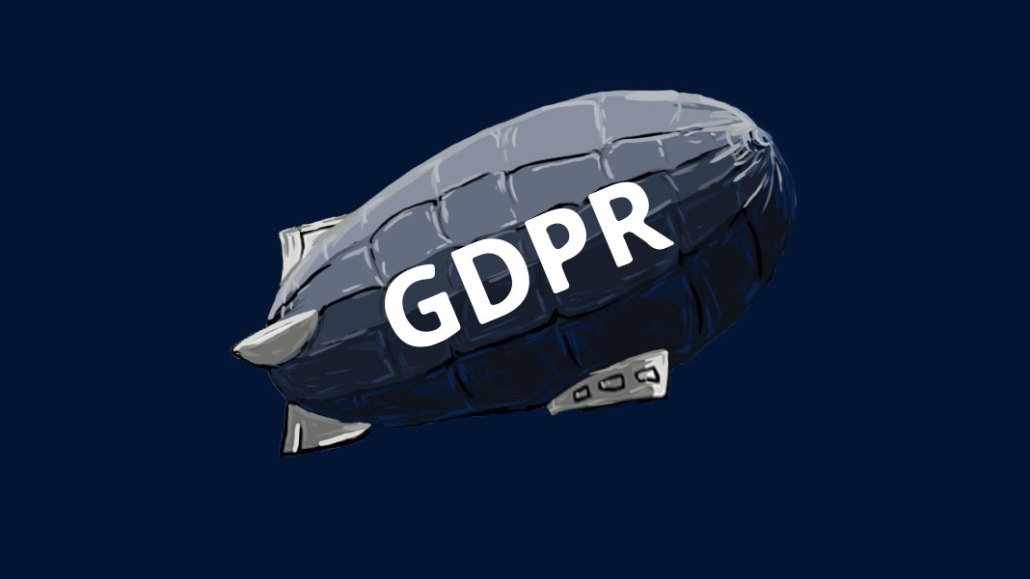Secure your place at the Digiday Media Buying Summit in Nashville, March 2-4
French media plan to meet with government over Google-GDPR concerns

Tensions between Google and France’s media and advertising industries are heating up following Google’s last-minute changes to its General Data Protection Regulation policy, which caused havoc in the European ad market in the immediate aftermath of the law’s arrival.
France’s five main trade bodies representing publishers, advertisers, agencies and ad tech vendors are set to meet June 15 with Mounir Mahjoubi, France’s secretary of state for digital, said Bertrand Gié, president of Geste and digital director of national newspaper Le Figaro. The groups planned to share with the French government their concerns that Google’s GDPR policy changes have damaged the digital ad ecosystem, due to Google’s size and dominant market position.
The trade bodies had met with Google representatives in Paris on June 12 to discuss an open letter they sent the tech giant on June 8, according to French publishing trade body Geste.
In the letter, the trade bodies — Geste, IAB France, media-buying body UDECAM, advertiser association UDA and digital ad body SRI — asked Google to expedite its integration with the Interactive Advertising Bureau Europe and IAB Tech Lab’s GDPR consent framework. Google hasn’t put its commitment to the framework in writing, causing unease in France.
During the meeting, Google representatives explained its position but did not mitigate the trade bodies’ concerns by committing to immediate action or requested changes, said Gié, who attended the meeting.
“The GDPR is a big change for everyone,” said a Google spokesperson in a statement. “We’ve been working hard to make sure that Google complies with its obligations under the GDPR, and to help our partners in their compliance efforts too. Over the last year, we’ve engaged with over 10,000 publishers, advertisers, agencies and associations across nearly 60 countries through events, workshops and conversations about GDPR compliance — and we’re committed to continuing that discussion.”
The trade associations also want Google to establish a permanent consultation process between them and its own representatives to share future GDPR-related decisions that affect its partners.
Google’s swift action
The impact of Google’s GDPR approach were felt across Europe as soon as it took effect. In France, volume demand dropped by as much as 50 percent for some independent ad tech vendors, while some publishers’ programmatic ad revenues dropped 70 percent, according to Gié. Google moved quickly to rectify the issue, with the result that several of the major exchanges such as AppNexus were reintegrated into Google’s ad-buying ecosystem in the days after May 25. Today, business is almost back to normal as more and more exchanges have been reintegrated, according to sources. But some vendors still aren’t on Google’s vendor whitelist, which has meant certain publishers’ programmatic ad revenues are suffering as a direct result, said Gié.
Despite Google’s swift action, discomfort remains about how one company could have such a big impact on the market — a concern that prompted the letter.
“We had to do something,” said Luc Vignon, head of digital transformation for publisher ad sales house Régie 366 and an IAB France board member. “There is a lot of frustration still in the market. In France, we don’t like leaders — we like challengers.”
The trade bodies also want Google to provide more clarity on how it plans to integrate into the IAB Europe and IAB Tech Lab’s framework by its proposed August deadline.
Media sources said Google’s reps in France have taken care to hear their concerns, but they sense that there’s not much they can do because the company’s strategy is led by its U.S. headquarters.
“Google’s local teams are being very cooperative and communicative, but they don’t have all the keys,” said David Pironon, chief programmatic officer of local ad server Smart, whose ad volumes have recovered since May 25.
Publishers scramble for consent
Most French publishers had opted for the legitimate-interest based approach to complying with the GDPR, according to sources. Once Google revealed it would take the far stricter consent-based approach in April, a scramble ensued. Publishers are now pushing to implement consent management systems so they can provide information on consent to Google and other partners, Pironon said.
But publishers have more to do to align with Google’s consent-based approach. Only around 20 percent of bid requests Smart has seen to date via its platform have information about consent attached to them, which is in line with the rest of the market, Pironon said.
“There is this intermediary period where the absence of information is not considered absent consent, so the [demand-side platforms] are still O.K. to buy as long as there is no explicit denial of consent,” he said. “But it won’t last. Publishers need to implement CMPs.”
Download our complete guide to GDPR.
More in Media

WTF is Markdown for AI agents?
AI systems prefer structured formats or APIs to ingest and surface content more efficiently. And “markdown” has quickly become the common language used by AI systems and agents.

From feeds to streets: How mega influencer Haley Baylee is diversifying beyond platform algorithms
Kalil is partnering with LinkNYC to take her social media content into the real world and the streets of NYC.

‘A brand trip’: How the creator economy showed up at this year’s Super Bowl
Super Bowl 2026 had more on-the-ground brand activations and creator participation than ever, showcasing how it’s become a massive IRL moment for the creator economy.








